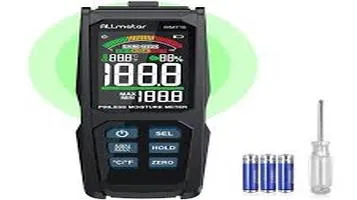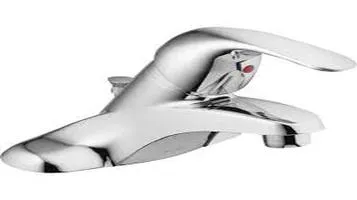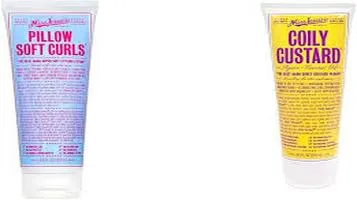Review of Moisture Meters: Essential Tools for Accurate Moisture Measurement
Moisture meters are essential tools designed to measure the moisture content in various materials, such as wood, concrete, and soil. These devices are widely used in industries like construction, agriculture, and woodworking to ensure optimal material conditions and prevent issues like mold growth or structural damage. Moisture meters typically come in two types: pin-type, which use electrical resistance to measure moisture by inserting pins into the material, and pinless, which use electromagnetic sensors to scan the surface. Accurate moisture readings help professionals make informed decisions, ensuring quality and longevity in their projects. Compact and easy to use, moisture meters provide quick results, making them invaluable for maintaining material integrity and ensuring safety in various applications.

Moisture meters are indispensable tools for professionals and hobbyists alike, offering accurate and reliable measurements of moisture content in various materials. From woodworkers and flooring installers to farmers and gardeners, these devices provide critical data that can significantly impact the quality and longevity of their work. In this review, we will delve into the types of moisture meters available, their applications, key features to look for, and some of the best models currently on the market.
Types of Moisture Meters
Moisture meters come in three primary types: pin-type, pinless, and all-in-one combination meters.
1. Pin-Type Meters: These meters use two metal pins that are inserted into the material being measured. They work by measuring the electrical resistance between the pins, which varies with moisture content. Pin-type meters are highly accurate and are particularly effective for measuring the moisture content of wood. However, they can leave small holes in the material, which might not be desirable in all applications.
2. Pinless Meters: These meters use electromagnetic sensors to scan the surface of the material. They are non-invasive and do not cause any damage to the material being tested. Pinless meters are ideal for measuring moisture in finished products and surfaces where aesthetics are important. They are also faster to use than pin-type meters since they do not require insertion.
3. All-in-One Combination Meters: These versatile meters incorporate both pin and pinless technologies, offering the benefits of both types. They provide flexibility and convenience, allowing users to choose the best method for their specific needs.
Applications of Moisture Meters
Moisture meters have a wide range of applications across various industries:
1. Woodworking and Lumber: Ensuring the correct moisture content in wood is crucial for preventing warping, cracking, and other structural issues. Moisture meters help woodworkers select properly dried lumber and monitor moisture levels throughout the production process.
2. Flooring Installation: Proper moisture levels in subfloors and flooring materials are essential to prevent issues like cupping, crowning, and buckling. Moisture meters help installers verify that materials are within acceptable moisture ranges before installation.
3. Agriculture and Gardening: Farmers and gardeners use moisture meters to monitor soil moisture levels, ensuring optimal growing conditions for crops and plants. This is particularly important in regions with variable rainfall or irrigation systems.
4. Building Inspection and Restoration: Moisture meters are valuable tools for detecting moisture intrusion in buildings, which can lead to mold growth and structural damage. Inspectors use these devices to assess water damage and monitor drying progress during restoration.
Key Features to Consider
When selecting a moisture meter, consider the following features:
1. Accuracy and Range: Look for a meter with a high level of accuracy and a suitable measurement range for your specific application. Some models offer calibration options to maintain accuracy over time.
2. Display and Readability: A clear, easy-to-read display is essential for quickly interpreting measurements. Backlit displays are particularly useful for working in low-light conditions.
3. Depth of Measurement: Some pinless meters offer adjustable depth settings, allowing you to measure moisture at different levels within a material. This can be useful for assessing moisture distribution.
4. Data Logging and Connectivity: Advanced models may offer data logging capabilities, allowing you to store and analyze measurements over time. Bluetooth or USB connectivity can facilitate data transfer to other devices for further analysis.
5. Durability and Build Quality: A robust, well-built meter will withstand the rigors of daily use. Look for models with protective casing and sturdy construction.
Top Moisture Meters on the Market
Several moisture meters stand out for their performance, features, and reliability:
1. Protimeter Surveymaster: This all-in-one combination meter offers both pin and pinless modes, making it versatile for various applications. It features a large, easy-to-read display and provides accurate measurements for wood, drywall, and masonry.
2. Wagner Meters Orion 930: A pinless meter known for its accuracy and reliability, the Orion 930 is ideal for woodworkers and flooring professionals. It offers a range of depth settings and includes Bluetooth connectivity for data logging.
3. General Tools MMD4E: A budget-friendly pin-type meter, the MMD4E provides accurate measurements for wood and building materials. It features a simple, easy-to-use design and is ideal for DIY enthusiasts and occasional use.
4. Extech MO55: This combination meter offers both pin and pinless modes, providing flexibility for different tasks. It includes an audible alert for high moisture levels and is suitable for a range of materials.
Conclusion
Moisture meters are essential tools for ensuring the quality and longevity of materials in various industries. By providing accurate and reliable moisture measurements, these devices help prevent costly issues and ensure optimal performance. When selecting a moisture meter, consider the type, key features, and specific applications to find the best model for your needs. With the right moisture meter, you can confidently monitor and manage moisture levels, ensuring the success of your projects.






